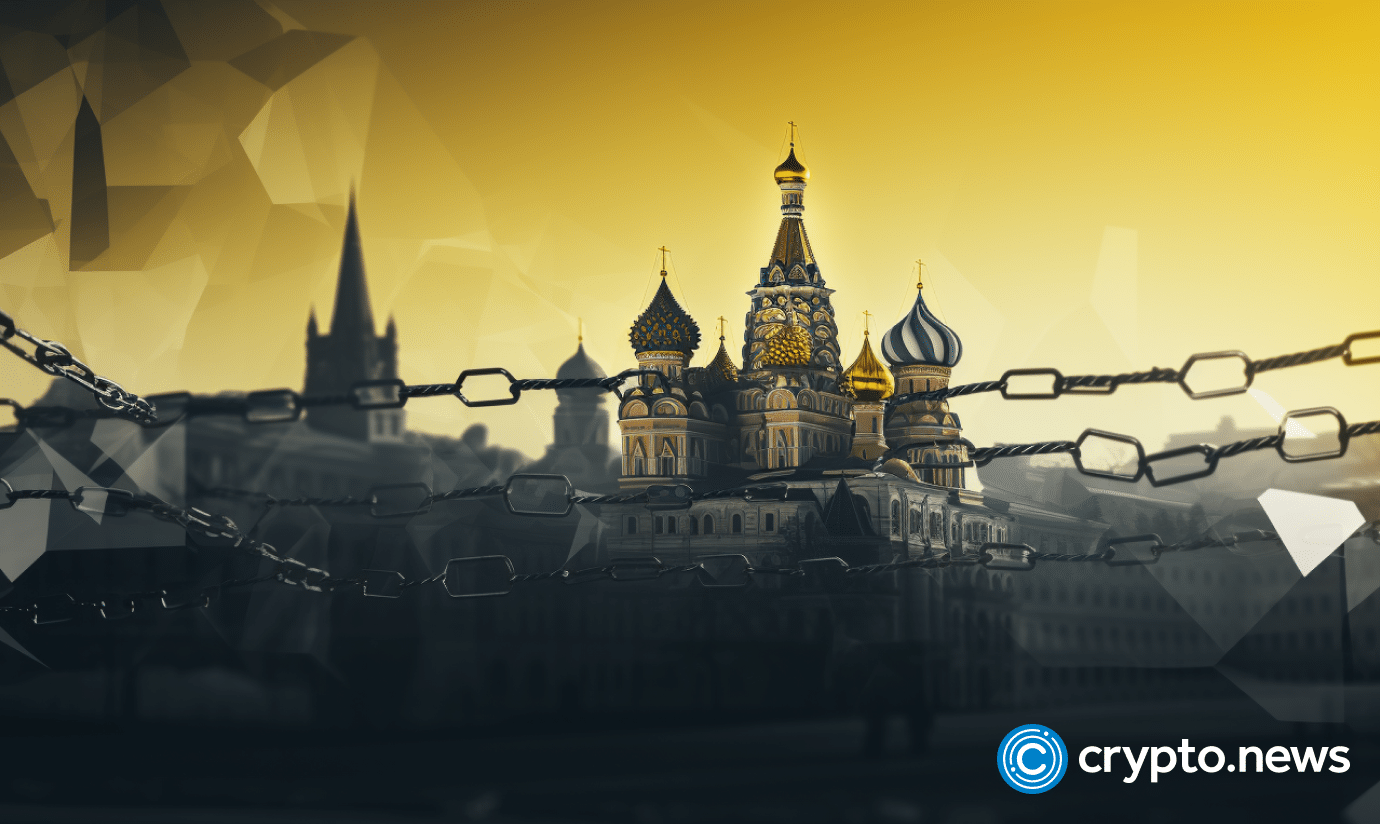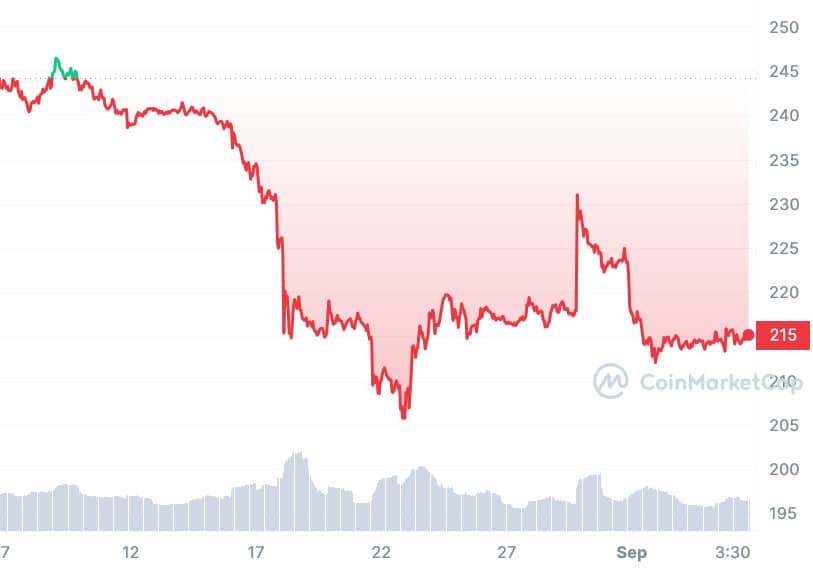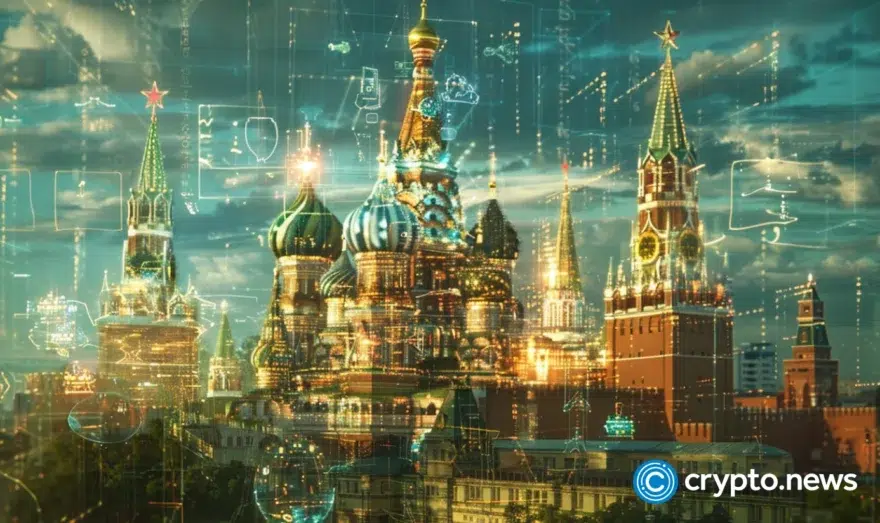From compliance to complicity: How Binance’s Russian connection undermines sanctions | Opinion

Binance, a renowned cryptocurrency exchange, is embroiled in controversy as recent reports suggest a possible helping hand to Russia amidst Western sanctions. The story unravels with connections to blacklisted Russian lenders, contradicting public statements, and the shifting regulatory landscape.
As dawn breaks over the world of crypto, murmurs seep into daylight, revealing stories that could shape the industry’s narrative. And as it happens, Binance, one of the juggernauts of the crypto world, finds itself at the heart of a contentious debate.
According to a Wall Street Journal report from Aug. 22, Binance seems to be processing transactions for not one, but at least five Russian lenders — lenders that have felt the cold shoulder from Western powers.
It is crucial to underline that this isn’t about everyday citizens seeking financial avenues. Rather, this is about individuals entrenched in power and wealth — the very beneficiaries of the war and individuals who are central to Putin’s regime.
Despite the barricade of international sanctions aimed to restrict their global financial engagements, these individuals may still find a lifeline to the worldwide financial ecosystem through Binance’s services.
What’s really happening?
In January 2022, the world found itself riveted to the chilling news of Russia’s invasion of Ukraine, igniting a geopolitical crisis that resonated deeply and widely. The international response was swift and decisive: the West, the European Union, and numerous other nations swiftly slapped unprecedented sanctions on Russia. More than just arms embargoes, these sanctions aimed at the very heart of Russia’s economic engine, endeavoring to choke off the fiscal lifelines that empower a nation.
Enter Binance, the crypto titan, embroiled in this milieu of global turmoil, finding itself under scrutiny for allegedly extending a financial lifeline to Russia, enabling an end-run around these oppressive sanctions.
To fully grasp the gravity of this situation, one must understand that in the wake of the invasion, Russian banks were severed from the SWIFT system, a pivotal global network facilitating international financial transactions.
This exclusion dealt a significant blow to Russia’s financial infrastructure, inciting a massive surge in cryptocurrency usage as a workaround. Russians began leveraging digital assets to circumvent traditional banking barriers, converting rubles to more stable and globally accepted currencies like dollars and euros, utilizing peer-to-peer (P2P) transactions extensively.
To grasp the intricacies of this situation, it’s essential to understand peer-to-peer (P2P) trading – a direct transactional system between individuals, devoid of any middlemen.
Consequently, platforms like Binance have come under the lens, with allegations of facilitating these transactions and, inadvertently or not, aiding in the undermining of international sanctions intended to bring Russia to heel.
P2P mechanism, while revolutionary, now appears to be the very tool enabling Russian transactions, particularly with blacklisted banks like Tinkoff Bank and Rosbank. The allure of peer-to-peer lies in its promise of anonymity, a feature that can be both a blessing and a curse.
Adding a layer of intrigue are the ‘Binance Angels.’ These champions of the Binance cause, largely volunteers, have allegedly been giving assurances on platforms like Telegram, underscoring the absence of trading restrictions for Russian users.
This narrative aligns eerily with past reports highlighting Binance’s decision to lift the €10,000 account limit for Russian traders, a move that now contradicts the recent EU sanction package.
Initially, this limit was set as a part of the EU’s restrictive measures targeting key decision-makers, oligarchs, and others responsible for undermining Ukraine’s territorial integrity and further curb Russia’s economic avenues. The sanctions tightened the prohibition on crypto assets by banning all crypto-asset wallets, accounts, or custody services, irrespective of the amount in the wallet, a significant shift from the previous allowance of up to €10,000.
However, this stance seems to conflict glaringly with Binance’s earlier public posturing. Mere months ago, in alignment with the EU’s stringent sanctions, Binance had firmly clamped down on Russians with assets exceeding €10,000 on its platform.
Binance’s strategy unveiled
In the intricate dance of international finance, especially one as new and volatile as cryptocurrency, every move is scrutinized.
Binance’s latest gambit on its P2P platform is no exception. By choosing to cloak banks under the guise of color codes rather than their actual names, the exchange has waded into murky waters.
This seemingly innocent system of labeling cards from prominent banks like Sberbank and Tinkoff as ‘green’ and ‘yellow’ has ignited speculation. Could this be a crafty endeavor to obfuscate their ties, subtly circumventing direct links to entities that have fallen foul of sanctions?
However, the winds of change seem imminent. Binance, now facing an even more complex challenge, is entwined in an escalating conflict with U.S. authorities.
This summer, the Securities and Exchange Commission (SEC) initiated a series of legal actions against the company, lodging more than a dozen charges against both Binance, and CEO, Changpeng Zhao. Accusations range from misleading investors to operating an unregistered — and therefore deemed illegal — exchange.
This mounting pressure from the US regulators is seen as an aggressive maneuver to clamp down on entities bypassing the established financial regulations, adding another layer of complexity to Binance’s operations amidst potential sanctions breaches.
In an effort to navigate this intricate web of challenges, Binance took decisive action on Aug. 25, indicating a possible shift in its strategies to possibly comply with regulatory norms and safeguard its standing in the global financial ecosystem.
Keen to distance itself from any brewing storm, it swung the axe on payments connected to cards from five blacklisted banks.
Adding another layer of caution, the platform also clamped down on its Russian clientele, restricting their ability to conduct P2P transactions in anything other than the ruble.
The regulatory mishaps
Navigating the intricate labyrinth of global regulations, Binance seems to be facing a series of setbacks. Whether it’s the cool winds of Europe where countries like the Netherlands, Germany, and Cyprus have shown reluctance, or the vast landscapes of North America, the crypto behemoth is consistently finding closed doors.
Yet, the external diplomatic challenges might just be the tip of the iceberg. The US Department of Justice (DOJ) seems to be lurking, its gaze fixed on Binance, raising potential legal showdowns involving the formidable CFTC and SEC. These battles could define the future course for Binance in the ever-evolving regulatory landscape.
Peeling back the layers, there’s also a human story intertwined with this saga. Several of the linchpins behind Binance have made their exit in the last two months.
While official narratives depict these as routine departures, the grapevine murmurs a different tune, suggesting these decisions might be driven by the storm clouds gathering over the firm.
And then, there’s the BNB token. Once the golden child of the crypto universe, its recent performance narrates a tale of caution and uncertainty.
The dwindling fortune of BNB
Rewinding to Aug. 22, the crypto world witnessed a startling event. The BNB token, in an unnerving descent, plummeted to a low of $204.
This fall invoked memories of the tumultuous period in June 2022, a time when the crypto market was in a frenzied disarray. By Sep. 5, BNB has found itself clawing its way back, settling at $215, but the damage is evident — a steep 11% loss within a month.

The corridors of the crypto community are filled with hushed conversations. Whispers about Binance’s potential strategy to prop up BNB’s value by unloading Bitcoin (BTC).
While these speculations have been dismissed outright by the likes of Binance’s chief, Changpeng “CZ” Zhao, they’ve gained traction, especially as BNB’s value declines and BTC plunges below the $26,000 mark.
The ethics of decentralization
The philosophy underpinning decentralized finance (DeFi) is revolutionary — granting financial autonomy and breaking free from the shackles of traditional monetary systems. Yet, when such platforms inadvertently become conduits for countries to sidestep international sanctions, it prompts a deep introspection on their ethical responsibilities.
It is essential to discern that sanctions are not just economic tools but potent instruments forged to maintain peace, exerting strategic pressure to deter nations from pursuing aggressive campaigns.
By potentially offering an economic lifeline to such nations, platforms like Binance could unintentionally be undermining global initiatives that aspire to foster peace and stability.
Moreover, considering China’s noted reluctance in imposing strict sanctions on Russia, one can’t ignore the speculation that Binance’s stance might, in some way, reflect a broader position consistent with the Chinese governmental approach to the crisis, fostering a complex web of geopolitical ramifications.
At the same time, concerns are mounting over Binance’s alleged adoption of a color-coding system. If substantiated, these claims could significantly escalate existing fears. This system, perceived as a veil to obscure the true identities of banks involved, beckons serious ethical and legal inquiries.
One is compelled to ponder – was Binance fully aware of the murky ethical waters it was navigating? Such a strategy might be construed as an implicit acknowledgment of the platform’s cognizance of the controversial landscape it has ventured into, teetering on the brink of both legal and ethical precipices.
The potential perils for Binance
In the ever-evolving crypto landscape, Binance’s recent maneuvers might ripple into unforeseen consequences. The immediate peril? A tarnished reputation. In the crypto realm, where faith and trust underpin transactions and investments, a single dent can lead to a cascade of distrust, potentially prompting users to reconsider their allegiance to the platform.
Yet, the repercussions stretch beyond mere brand image. This saga might serve as a rallying point for governments across the globe to impose more stringent regulations on decentralized systems. Fearing that such platforms could undermine global peace efforts, authorities might clamp down with regulatory frameworks, threatening the very ethos of decentralization that crypto enthusiasts hold dear.
Furthermore, there’s a significant human element at play. As Binance potentially extends an inadvertent lifeline to a nation embroiled in conflict, the exchange risks alienating a considerable segment of its user base.
Many within the global community resonate with Ukraine’s trials, and they often anticipate entities, particularly influential ones like Binance, to assert a moral stance. In times of geopolitical turbulence, neutrality, particularly when it might indirectly support the aggressor, risks being interpreted not as impartiality but as tacit complicity.
The road ahead
As Binance grapples with the aftershocks of its recent debacles, a pivotal moment of introspection looms. The path forward, while uncertain, demands a recalibration of priorities. For giants like Binance, the call of the hour isn’t merely operational transparency but a conscientious intertwining of ethics with profit-making.
While the allure of decentralization beckons with its vast promises, platforms must now meticulously balance it with a heightened sense of global accountability. Engaging more effectively with global regulators, enlightening users about potential geopolitical implications, and laying down unequivocal policies are no longer optional — they’re paramount.
In today’s interconnected epoch, where a single digital transaction can echo worldwide, Binance’s journey forward isn’t just about leaping regulatory barriers. It’s about reimagining its identity and purpose in a world that’s in flux.
















